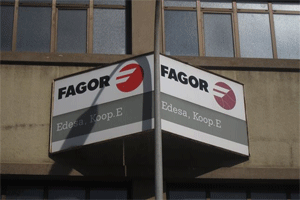
Justice endorses the good faith of the administrator in the contests
Although creditors try to have bankruptcy proceedings classified as guilty to recover as much as possible of outstanding payments, judges usually favor the directors.
Bankruptcy activity in Spain is already showing signs that a change in trend is occurring. Although the number of insolvency proceedings registered this year has decreased, that does not mean that the courts have been decongested, since creditors continue to try to recover as much as possible of the debts contracted from those who end up in liquidation.
In an attempt to assume minor losses, it is quite common for creditors to ask the judge to classify the bankruptcy as culpable, so that the administrators who led the company to the situation of insolvency are forced to cover the costs with their personal assets. debts that remain to be paid after liquidating the company's assets.
However, in the absence of official figures, experts estimate that more than 80% of judicial decisions end up classifying the process as fortuitous, that is, releasing the administrators from all responsibility, so it is the creditors who have to assume the responsibility. losses for those invoices or credits that will not be collected.
In this way, the judges are gradually putting order in the bankruptcy regulations, which already have several reforms behind them. Even so, it has not been easy, since the courts did not agree on the interpretation of the rule, especially with regard to the responsibility of the administrators.
At first, while the judges of Madrid were inclined towards a more objective and broad sanction of the liability of the partners or administrators, those of Barcelona linked the scope only to decisions that had a direct impact of guilt. Finally, the Supreme Court acted as arbitrator, which opted for Catalan jurisprudence. In a subsequent reform, the law adapted this decision, clarifying that administrators are liable with their assets to the extent that they have generated or aggravated the insolvency situation, thus limiting the scope of the sanctions.
NormativeFor example, if a bankruptcy is declared guilty, the administrator does not have to cover the entire financial hole, but only that part that is due to incorrect or non-compliant actions. This is one of the reasons why judges more frequently opt in favor of random contests. For a creditor to get the administrator's management declared guilty, "it is necessary to demonstrate and prove the damage", in addition to calculating the impact that this specific action has had on the insolvency situation, according to Adrian Dupuy, partner at PwC Tax. & Legal.
This expert points out that there are other factors that explain the fact that most contests are classified as fortuitous. The current regulations stipulate that if the report of the bankruptcy administration and the opinion of the Public Prosecutor's Office coincide in indicating that the process is fortuitous and the managers cannot be held accountable, the judge is obliged, by law, to archive the proceedings. . Furthermore, this decision cannot be appealed.
Among other things, what this measure aims to do is speed up the processes, especially taking into account that, in Spain, more than 90% of the companies that declare bankruptcy ultimately end up in liquidation, which is when the phase opens. of qualification.
Dupuy explains that bankruptcy regulations "limit patrimonial liability", so that an administrator does not have to face the company's debts with his personal resources for the mere fact of making a business decision that has not achieved the expected results or It has gone wrong. However, it does punish the manager who has acted in bad faith or contrary to the law.
Fountain: www.expansion.com



